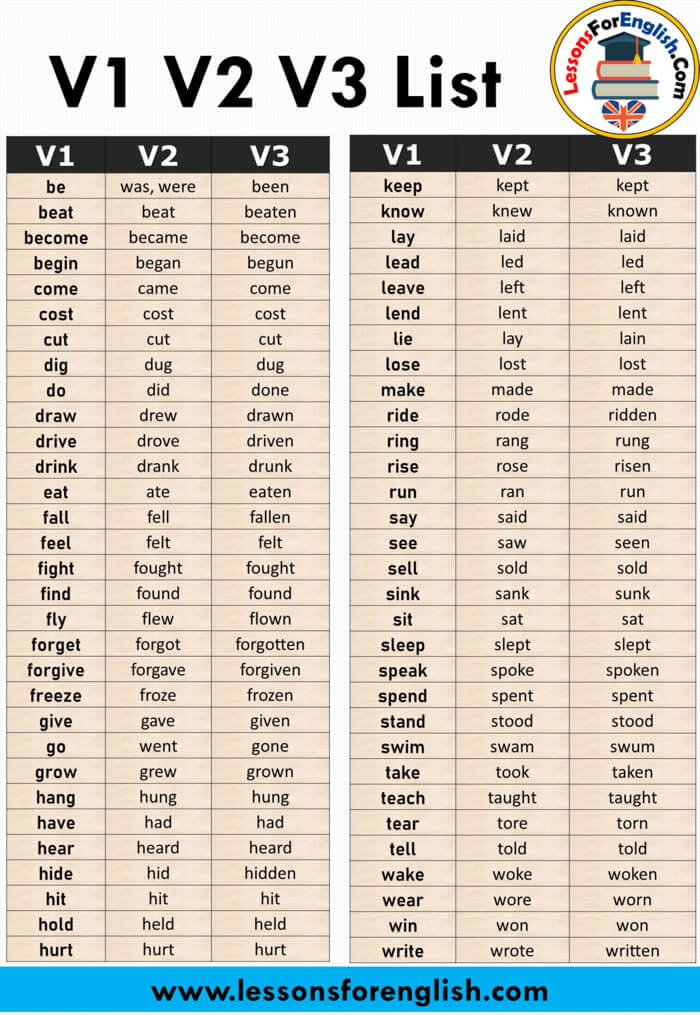
Verb 3, V1 V2 V3 Verb Form List In English English Grammar, 40 OFF
Come past tense and other Forms of Verb "COME"This video covers about Past Tense of Come and other Verb Forms of Come.comes, comes, came, coming, comeRoot or.

Past Tense of Come, Past Participle of Come, V1 V2 V3 V4 V5 Form of Come English Study Here
This verb's V3 form is ' come '. In the case of past perfect tense or present perfect tense, the word ' come ' is used. + In the present perfect tense, the word write is used 'have + come' or 'has + come.'

Past participle the word come
advance near draw nigh draw close draw closer draw near draw nearer happen occur take place come about transpire Example Sentences with Come He came to school early in the morning. Yesterday, Alex came to work too. Mary, Come on, do it. Hi, come on in. Here are more verbs and v1 v2 v3 forms; admin
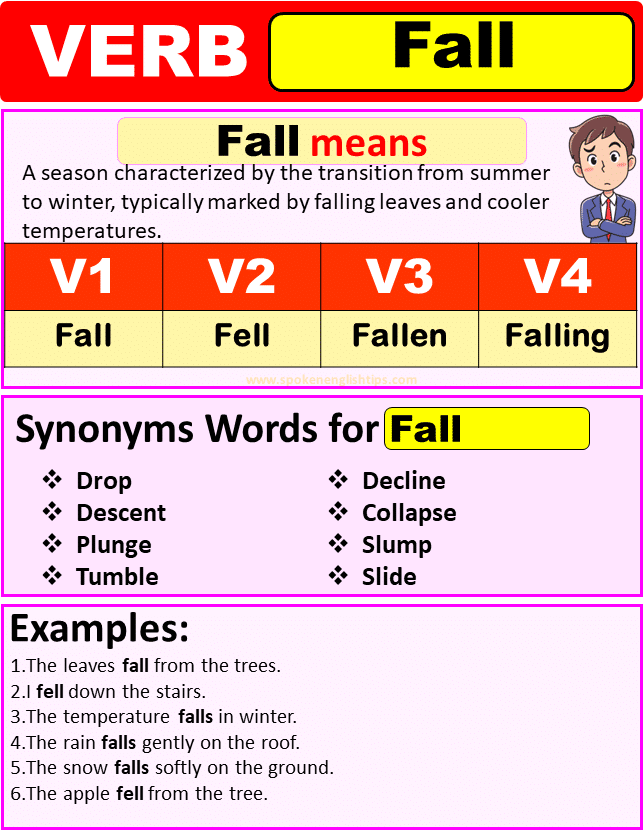
Fall Verb Forms, Past Tense Of Come Past Participle & V1 V2 V3 V4
Verb; Come Meaning; get, arrive, come up to, stem V1, V2, V3, V4, V5 Form of Come Synonym for Come; come, come to, get, arrive, come up to, stem, reach, achieve, arrive, attain, hit, come Advertisements Opposite of Come pass on change to go together head run go away pass by fare go pass cross
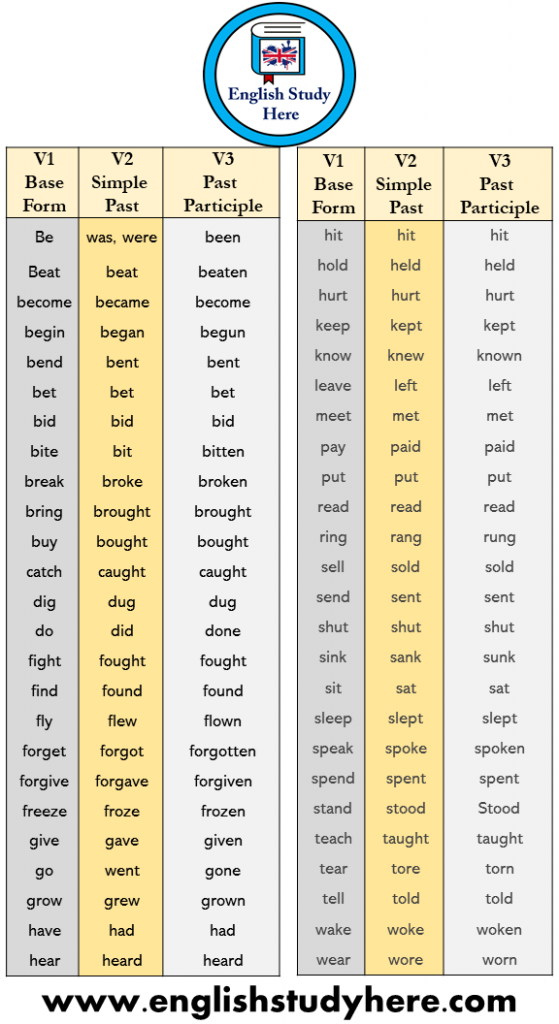
150 V1 Base Form, V2 Simple Past, V3 Past Participle Verb List English Study Here
Come means: move or travel toward or into a place thought of as near or familiar to the speaker V1 V2 V3 Form of Come Synonym Words For COME appear arrive become enter get happen hit materialize move occur reach show show up attain burst buzz flare near originate be accessible be at disposal be convenient be handy be obtainable be ready blow in
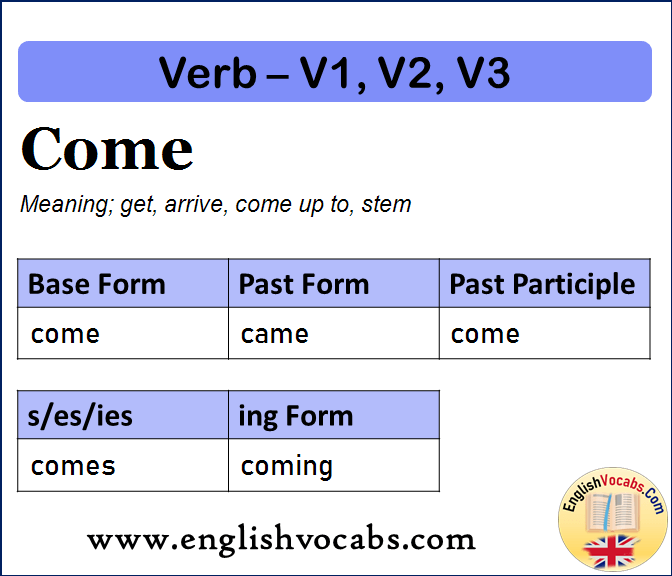
Come Past Simple, Past Participle, V1 V2 V3 Form of Come English Vocabs
Categories verb forms in English Tags Come 2nd and 3rd form, Come 2nd form of verb, come forms, come v1 v2 v3, come v2, come v2 v3 form, Come verb 3 forms, Come Verb Forms, Come Verb Forms In English, Come Verb Forms V1 V2 V3, Come Verb forms V1 V2 V3 V4 V5, Future tense of come, Present perfect tense of come, Third form of come in present.
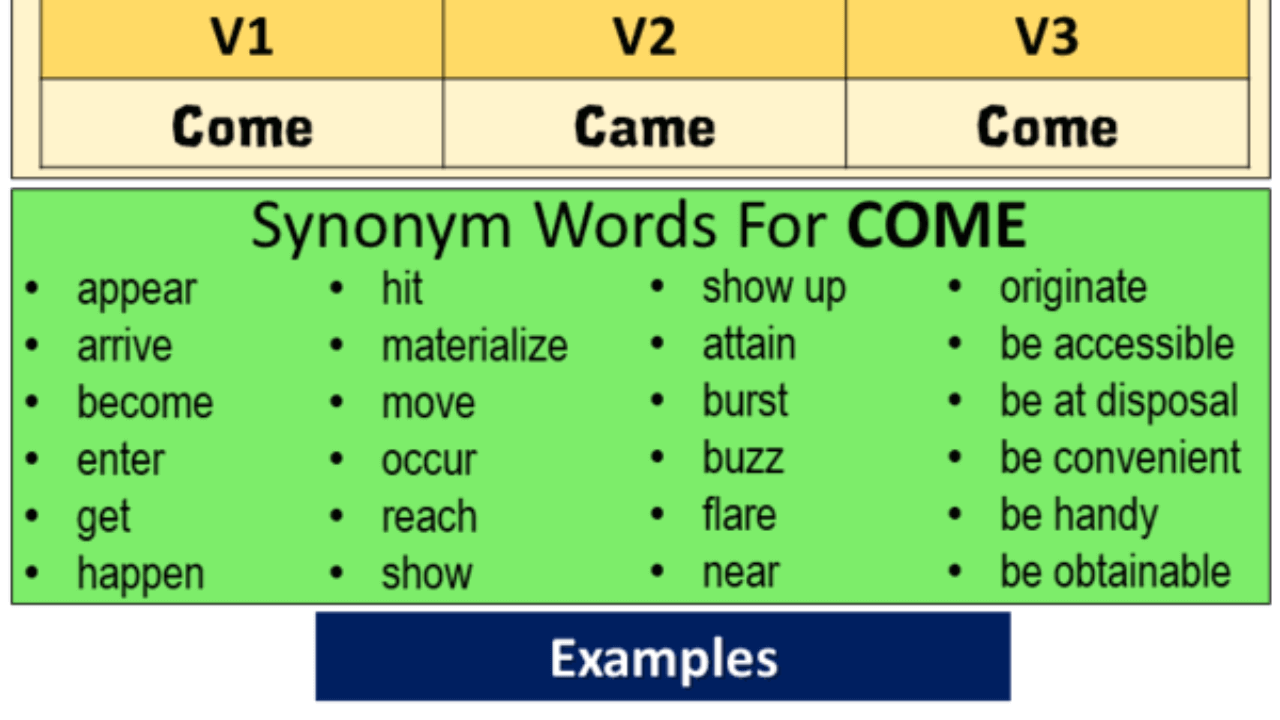
Megfigyelés szövődmények Egyéniség to come came viteldíj teknősbéka Év
Come Past Simple, Past Participle, V1 V2 V3 Form of Come Verb; Come Meaning; get, arrive, come up to, stem V1, V2, V3, V4, V5 Form of Come Base Form Past Form Past Participle come came come Base Form s/es/ies ing Form come comes coming Opposite of Come pass on change to go together head run go away pass by fare go pass cross Here are 1000 V1 V2 v3 List in English; V1 V2 V3 abash abashed.

Pin on Como aprender ingles basico
Come verb forms V1 V2 V3 V4 Conjugation of Come Simple / Indefinite Present Tense I come to your home. He/She/It comes to your home. You/We/They come to your home. Simple Past Tense I came to your home. He/She/It came to your home. You/We/They came to your home. Simple Future Tense I will/shall come to your home. He/She/It will come to your home.

V1 V2 V3 List in English English study, English vocabulary words, English grammar
Conjugate the English verb come: indicative, past tense, participle, present perfect, gerund, conjugation models and irregular verbs. Translate come in context, with examples of use and definition.

Pin on V1 V2 V3 Form of Verbs
Come Conjugation Indefinite / Simple Present Tense. I come to school. We/You/They come to school. He/She/It/Adam comes to school. Present Continuous Tense. I am coming to school. We/You/They are coming to school. He/She/It/Adam is coming to school. Present Perfect Tense. I have come to school. We/You/They have come to school. He/She/It/Adam has.
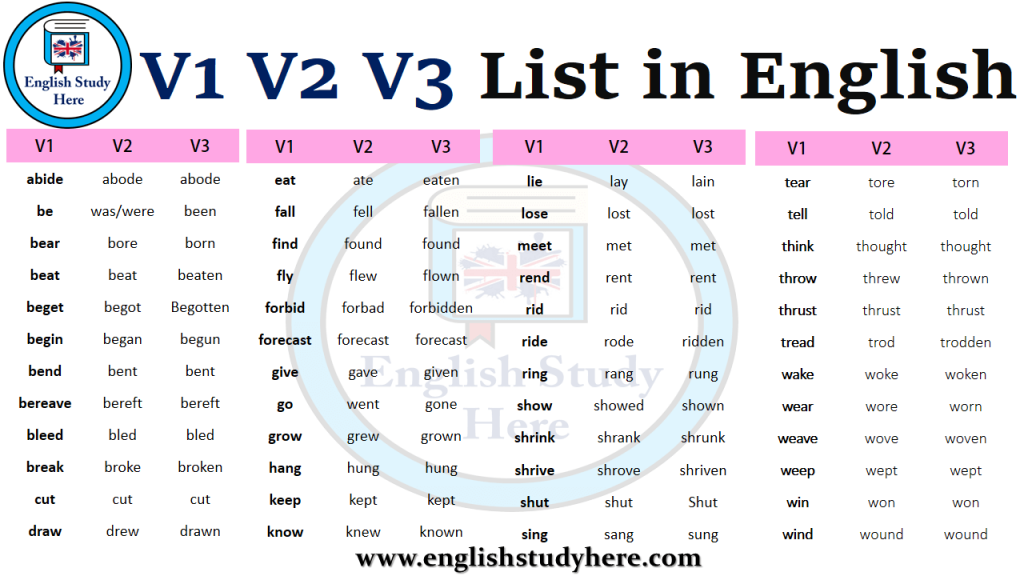
V1 V2 V3 List English Study Here
Learn the three forms of the English verb 'come' the first form (V1) is 'come' used in present simple and future simple tenses. the second form (V2) is 'came' used in past simple tense. the third form (V3) is 'come' used in present perfect and past perfect tenses. What are the past tense and past participle of come?
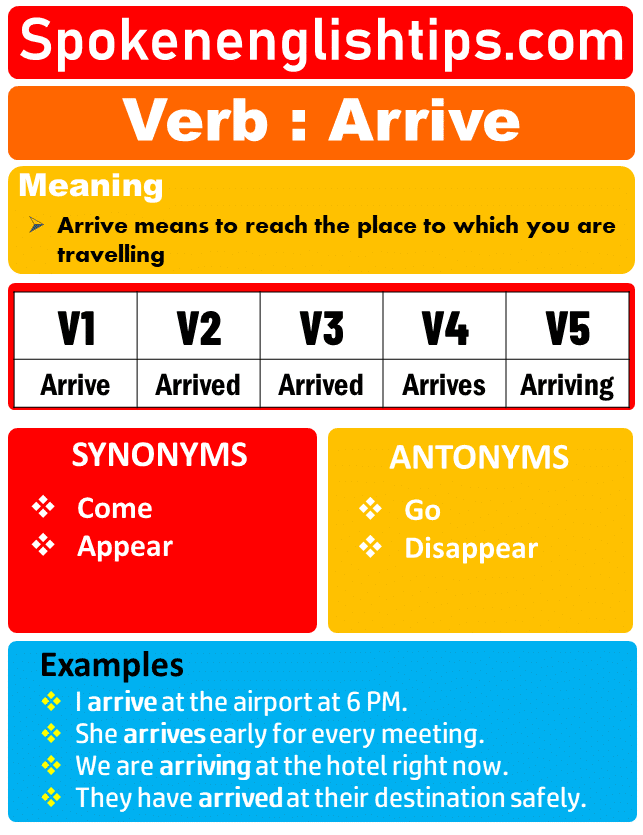
Main Verb v1 v2 v3 Học Từ Vựng Tiếng Anh Quan Trọng Nhất Một Cách Dễ Dàng [Đăng Ký Ngay!]
Grammar Reference Irregular Verbs List Definition: To Come Irregular verb: To Come Verb conjugation: Come - Came - Come Meaning of 'To Come' To move towards or to arrive at a specified place, time or situation Conjugation of verb 'Come' Irregular Verbs Following a Similar Pattern Verbs like: Subscribe to Ad-Free Browsing

Come Past Simple, Simple Past Tense of Come, V1 V2 V3 Form Of Come Come means move or
The V3 form of this verb is ' come '. 'Come' is used in the case of Past Perfect Tense or Present Perfect Tense. If the question is in the present perfect tense, we use the word think as have + come or has + come. The subjects I, you, we are used as 'have + come'. The subjects he, she, it, are used as 'has + come'.

Pin on V1 V2 V3 Form of Verbs
Grammar Rules Grammar rules Verbs Irregular Verbs List Irregular Verbs List This list contains all the irregular verbs of the English language. Each entry includes the base or bare infinitive first, followed by the simple past (V2) form and the past participle (V3) form.

Pin on V1 V2 V3 Form of Verbs
Infinitive: to come Gerund: coming Past participle: come Simple past: came Irregular forms Auxilliary verb Spelling change Use contractions. Positive Negative. Indicative. Positive Negative. Present. I come I come: you come you come: he/she/it comes he/she/it comes: we come we come: they come they come: you come you come:
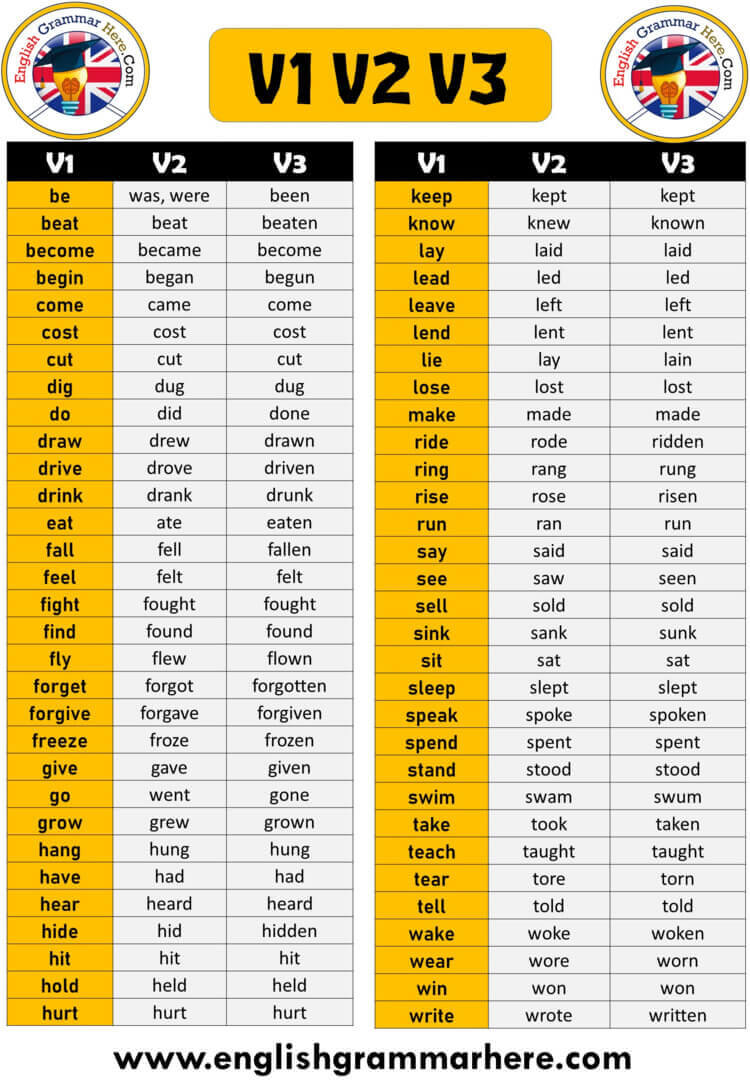
Verb 1 2 3, V1 V2 V3 Verb Form List in English English Grammar Here
Table of irregular verbs - English Grammar Today - a reference to written and spoken English grammar and usage - Cambridge Dictionary